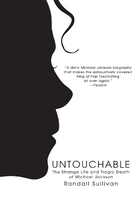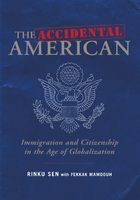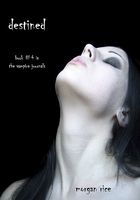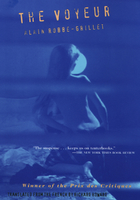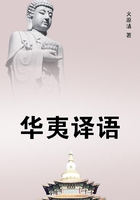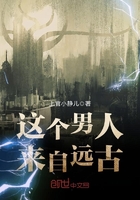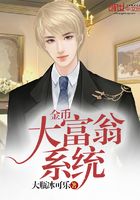John F. Kennedy Seen From the Hill of History
By Thomas Maier
Before his career in politics, John F. Kennedy was known simply as Jack. A smart but chronically ill youngster, he grew up the second son of Joseph P. Kennedy, a bold and sometime brazen Wall Street entrepreneur, and his wife Rose, the beautiful and deeply religious daughter of "Honey Fitz," former Boston Mayor John F. "Honey Fitz" Fitzgerald. Joe's father also had been a local politician, but his aim was much higher. He intended to see his oldest son, Joe Jr., become the first Catholic elected to the presidency. When Joe Jr. was killed in a plane explosion during World War II, Jack became the focus of his father's ambitions.
Until then, Jack had led a relatively carefree existence within a large family of nine children. He was full of charm, occasional mischief and an abiding curiosity about the world. As an avid reader, partly due to his repeated hospital stays, he learned a lot about history. Yet he was nearly expelled from Choate when the headmaster learned that young Jack and his pals had created a secret "Muckers Club" to mock the school's strict traditions. "After long experience in sizing up people, I definitely know you have the goods and you can go a long way," Joe Kennedy warned his son. "Now aren't you foolish not to get all there is out of what God has given you and what you can do with it yourself."
Jack, like his father and older brother, graduated from Harvard. But Kennedy's education as a public man began in earnest with his experiences in London, after his father was appointed in 1938 as U.S. Ambassador to the Court of St. James. Jack traveled widely in Europe and watched first-hand as the Nazi war machine threatened the world. His Harvard thesis about England's appeasement of Hitler was turned into a best-selling book, Why England Slept. When America entered the war, Jack joined the Navy and served in the Pacific, where one night a Japanese cruiser cut Lt. Kennedy's PT-109 boat in half. Despite the tragic loss of two men, Kennedy bravely helped his crew to safety. Once saved, Kennedy was hailed in the press at his father's urgings. When later asked how he became a hero, Jack offered a wry and more truthful response: "It was involuntary—they sank my boat."
After the war, Jack decided to run for Congress in 1946, and with the help of his father's money, "Honey Fitz's" political familiarity and, perhaps most importantly, his mother's well-attended tea parties to court female voters, he won his first election. After a rocky start as a public speaker, Kennedy proved a natural. "Your Jack is worth a king's ransom," his father's political adviser told him. "He has poise, a fine Celtic map. A most engaging smile." Joe Kennedy, whose own political career blew up over his opposition to U.S. entry in World War II, was amazed by his son's affinity for shaking hands with voters. "I never thought Jack had it in him," he marveled. In Washington, Kennedy was considered a lackluster representative too often concerned with his active social life, but in Massachusetts he remained very popular, gaining a U.S. Senate seat in 1952. His win over incumbent Republican Henry Cabot Lodge Jr. was seen as a victory for the rising fortunes of Irish Catholics who once faced bigotry from Boston's traditional Brahmins. The following year, Jack married Jacqueline Bouvier, a stunningly attractive Washington newspaper photographer, in a grand Rhode Island wedding.
The Kennedy children, August 1928. (John F. Kennedy Library)
(Left to right, back row) John F. Kennedy, Jean Kennedy, Joseph P. Kennedy, Rose Kennedy, Joseph P. Kennedy Jr., (left to right, bottom row) Robert F. Kennedy, Eunice Kennedy, Patricia Kennedy, Kathleen Kennedy, and Rosemary Kennedy posed for a family portrait sitting on the beach, 1931. (John F. Kennedy Library)
Behind the famous engaging smile there was constant pain. Jack's chronic ill health and a wartime back injury that required surgery kept him again in a hospital bed for seven months, during which time he wrote the 1956 book Profiles in Courage. This Pulitzer Prize–winning account recalled those in American politics who relied on principle rather than expediency in facing crucial questions of their time. Among this list of heroes, he lauded Senator George Norris, a Republican from Nebraska, for supporting Al Smith's 1928 bid for president and arguing that no American should be discarded simply because of religion. It was an argument that Kennedy would soon make again in his own bid for the White House. During that 1960 presidential race, in which polls showed his religion was the number one issue, Kennedy made a carefully prepared speech embracing America's traditional separation of church and state. Kennedy's victory relied heavily on bloc voting among Catholics and other minority groups in urban areas, but he also won because this Harvard-educated son of a millionaire didn't look like the stereotype of a big-city pol like Smith, or even his own grandfather.
By examining Kennedy's private papers, we can see beyond the glossy photos orchestrated by his father and his political aides to gain public approval. Though many have called his family "America's royalty," invoking Camelot imagery of British Knights of the Round Table, Kennedy's own story is very much rooted in American ascendancy, the idea that immigrant families who came to this nation like his own might one day reach the top of society. Both his brothers said this belief in open access to the ladder of success was among Jack's most cherished and deeply held convictions. Many of us are familiar with the extraordinary events that occurred during Kennedy's 1,000 days as president—the struggle for civil rights; the race to the moon; the Cold War struggles over Cuba, Berlin and Vietnam—but few remember his momentous decision to change America's laws about immigration, a decision rooted in his family's experience.
Kennedy's vision of the nation's future was described in his least known book, A Nation of Immigrants. A paean to the pulsing, flowing heart of America with photos of immigrants from around the world, it drew little attention when published in 1958. "There is no part of our nation that has not been touched by our immigrant background," he praised. "Everywhere immigrants have enriched and strengthened the fabric of American life." In looking back, his call for a fairer immigration system seemed remarkable for a presidential candidate who, two years later, would break a barrier as a Catholic elected president, the first from a minority background. Despite his Waspy all-American appearance, Kennedy was well aware of slights felt by his own Irish Catholic immigrant family in rising up the socioeconomic ladder. His grandfather, "Honey Fitz," apocryphally told of the "No Irish Need Apply" signs that once hung in Boston. "The Irish were in the vanguard of the great waves of immigration" during the 1800s, JFK recalled in his book. These new arrivals off the boat "were mostly country folk, small farmers, cottagers and farm laborers"—just like Patrick Kennedy, his great-grandfather, a migrant worker who came to the United States fleeing the Irish famine in County Wexford. His book reflected the Kennedys' own experience in America. Even JFK's millionaire father, Joseph Kennedy, felt the sting of discrimination and was hell-bent that his children not be held back. "I think that the Irish in me has not been completely assimilated," the Kennedy patriarch confided to a friend, "but all my ducks are swans."
The Kennedy family at Hyannis, Massachusetts, in the 1930s. (Bachrach/Getty Images)
Deeply rooted in his family's own experience, Jack Kennedy's little book became the blueprint for a law eliminating the racial discrimination inherent in the nation's immigration quota system and allowed for the reunification of families. Ultimately, JFK's idea became the Immigration and Nationality Act Amendments of 1965, pushed through Congress with little fanfare by his brothers, Ted and Robert. According to Ted, "He was very proud of his Irish heritage and while growing up came to realize how the Irish in Boston make great contributions to the life of the city. He came to see that immigrants from many other nations enhanced America and helped the nation move forward into the future… So he wrote that book to show how much immigration helped America…"
The great English writer, G. K. Chesterson, wrote that "History is a hill… from which alone men see the town in which they live or the age in which they are living." From that hill that history provides, we can see today how Kennedy's law created the new, far more diverse nation that our children live in today and will for generations to come. This is an important part of Kennedy's legacy that many historians of his time didn't recognize and only now can be fully understood.
We called him Mr. President for three years, until his life ended abruptly with an assassin's bullet, a national trauma jarring enough to obscure his true meaning. Only now, fifty years after his death, are we gaining the historical vantage to fully appreciate John F. Kennedy's legacy to America. With tragic irony, we stare at those family pictures of a young handsome president playing on the White House lawn or in a sailboat at Hyannis Port with his beautiful wife and two children, so full of life, so unaware of the cruel fate that awaits.
In the wake of his murder, former friends and colleagues recalled Kennedy's heroic life with a "Camelot" mythology suggested by his widow. Critics later disclosed his extramarital affairs, his reliance on heavy-duty drugs to control pain and illness, and administration plots to kill foreign leaders—the "dark side" of a personality with many compartments. Over time, the portrait of Kennedy became deeper, more complex, yet equally compelling. Americans still ranked him among their most admired leaders.
From the broadest vantage, his story reminds us of the glories and limits of America's melting pot and those histories that paint people from minority groups in familiar "just like us" tones. We better understand Kennedy's appeal beyond Irish Catholics—to include countless immigrant and minority groups who want to share a common dream with all. By opening the door more fully, he changed the face of America and who we are, both demographically and spiritually, as a nation.
Joseph P. Kennedy, former chairman of the S.E.C., with Mrs. Kennedy and their children at their home in Bronxville, New York, 1937. (The New York Times)
In this context, our understanding of Kennedy's legacy becomes richer and of far greater historical significance than singular incidents or individual achievements. Fifty years later, we're reminded of how far we've progressed since his 1960 election, and yet how many aspirations still remain today.
No one would understand better than Jack Kennedy.
* * *
Thomas Maier is an award-winning journalist and the author of several books, including The Kennedys: America's Emerald Kings (2003).
Kennedy's Son is Hero in Pacific As Destroyer Splits His PT Boat
_______
By THE ASSOCIATED PRESS
A UNITED STATES TORPEDO BOAT BASE, New Georgia, Aug. 8, 1943 (Delayed)—Out of the darkness, a Japanese destroyer appeared suddenly. It sliced diagonally in two the PT boat skippered by Lieut. (j. g.) John F. Kennedy, son of the former American Ambassador in London, Joseph P. Kennedy.
Crews of two other PT boats, patrolling close by, saw flaming high octane gasoline spread over the water. They gave up "Skipper" Kennedy and all his crew as lost that morning of Aug. 2.
But Lieutenant Kennedy, 26, and ten of his men were rescued today from a small coral island deep inside Japanese-controlled Solomons Island territory and within range of enemy shore guns.
Two men of Lieutenant Kennedy's crew were lost when the enemy destroyer rammed the boat at a speed estimated at forty knots.
On three nights, Lieutenant Kennedy, once a backstroke man of the Harvard swimming team, swam out into Ferguson Passage hoping to flag down PT boats going through on patrol. Ensign Ross did the same one other night. But they made no contacts.
On the afternoon of the fourth day two natives found the survivors and carried to the PT boat base a message Lieutenant Kennedy crudely cut on a green coconut husk.
Chronologically, Lieutenant Kennedy, Ensign Thom and the crewmen told the story this way:
Four Japanese destroyers came down Blackett Strait around the south coast of Kolombangara Island about 2:30 A. M. on Aug. 2. In two phases of a confused engagement the PT's claimed three hits and three probable hits on one of the enemy ships.
It was while the destroyers were returning, probably after delivering supplies and reinforcements near Japan's base at Vila, on Kolombangara, that the enemy ship rammed the Kennedy boat. Ross and Kennedy saw the destroyer coming.
"The destroyer then turned straight for us," he said.
"It all happened so fast there wasn't a chance to do a thing. The destroyer hit our starboard forward gun station and sliced right through. I was in the cockpit. I looked up and saw a red glow and streamlined stacks. Our tanks were ripped open and gas was flaming on the water about twenty yards away."
Kennedy went out to get McMahon, who had been at the engine station and was knocked into the water in the midst of flaming gasoline.
"McMahon and I were about an hour getting back to the boat," Kennedy said. Watertight bulkheads had kept the bow afloat, the skipper explained. "There was a very strong current."
After getting McMahon aboard, Kennedy swam out again to get Harris.
Just before dawn the current changed to carry the survivors away from the Japanese-held coast. About 2 P.M. Kennedy decided to abandon the bow section and try to reach a small island.
Kennedy swam to the island, towing McMahon. The others clung to a plank and swam in a group. It took about three hours to make it. The men stayed on this island until Wednesday, when all coconuts on the island's two trees were eaten.
Late that afternoon they swam to a larger island, where there were plenty of coconuts.
At night, Kennedy put on a life-belt and swam into Ferguson Passage to try to signal an expected PT boat.
The two natives found the survivor group Thursday afternoon. That night, a little after midnight, a PT rescue boat, guided by a native pilot, went into the twisting passages to make contact with Kennedy on an outer island.
John F. Kennedy in a World War II photograph on the bridge of the famed PT-109 torpedo boat on which he served as commander. (Associated Press)
Notables Attend Senator's Wedding
________
Special to The New York Times
NEWPORT, R. I., Sept. 12, 1953—A crowd of 3,000 persons broke through police lines and nearly crushed the bride, Miss Jacqueline Lee Bouvier, when she arrived for her marriage here this morning to United States Senator John Fitzgerald Kennedy of Massachusetts. The throng had milled around St. Mary's Roman Catholic Church for more than an hour before the guests began to arrive.
The church was filled with some 800 guests, including most of the Newport summer colony, and many political notables.
The bride is the daughter of Mrs. Hugh D. Auchincloss of Hammersmith Farm, Newport, and Merrywood, McLean, Va., and John V. Bouvier 3d of New York. Senator Kennedy is the son of Joseph P. Kennedy, former Ambassador to the Court of St. James and Mrs. Kennedy of Hyannis Port, Mass., and Palm Beach, Fla.
The Most Rev. Richard J. Cushing, Archbishop of the Archdiocese of Boston, performed the ceremony and was the celebrant of the nuptial mass. He also read a special blessing from the Pope.
Luigi Vena of Boston was tenor soloist and sang "Ave Maria," "Panis Angelicus" and "Jesu Amor Mi" during the ceremony.
Escorted at the ceremony by Mr. Auchincloss because of the illness of her father, the bride wore a gown of ivory silk taffeta, made with a fitted bodice embellished with interwoven bands of tucking, finished with a portrait neckline, and a bouffant skirt. She wore an heirloom veil of rosepoint lace that had been worn by her grandmother. The veil was draped from a tiara of lace and orange blossoms and extended in a long train. She carried a bouquet of pink and white spray orchids and gardenias.
The bride, who was graduated from Miss Porter's School in Farmington, Conn., attended Vassar College and the Sorbonne in Paris. She was graduated in 1951 from George Washington University. Mrs. Kennedy is a granddaughter of James T. Lee of New York, the late Mrs. Lee and the late Mr. and Mrs. John Vernou Bouvier Jr. of New York.
Senator Kennedy was graduated in 1940 from Harvard College, where he was a member of the Hasty Pudding Institute of 1770 and the Spee Club. During World War II, he commanded a PT boat in the South Pacific.
He was elected to the House of Representatives in 1946 and elected to the Eighty-first and Eighty-second Congresses. In 1952, he was elected to the Senate on the Democratic ticket.
The bridegroom is a grandson of the late John F. Fitzgerald, former Mayor of Boston; the late Mrs. Fitzgerald, the late Patrick J. Kennedy, who was a former Massachusetts State Senator, and the late Mrs. Kennedy.
Senator and Mrs. John F. Kennedy at their wedding in Newport, Rhode Island, September 12, 1953. (Lisa Larsen/Time & Life Pictures/Getty Images)

